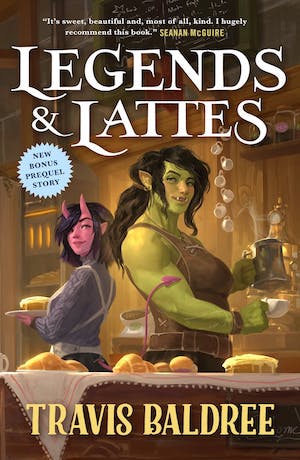It is no mystery why so many fantasy authors resort to high-stakes conflicts. Nothing engages the reader quite like having the entire world at stake. For proof, consider how very well The Lord of the Rings has sold for so very long, not to mention the popularity of the legions of blatant knock-offs works inspired by The Lord of the Rings.
And yet, offering nothing but world-saving is a bit like offering nothing but 100-decibel high notes. Eventually one becomes numb to what should be thrilling. Also, high stakes series raise legitimate questions about the Big Bad’s competence. If Evil launches seven different apocalypses, all of which are foiled by the same small group of high school- and college-age teens, one has to wonder if maybe Evil should consider pursuing opportunities in a different field.
Fortunately, it is perfectly possible to write works and series in which the stakes, while important to the protagonist(s), are merely personal. Regardless of what happens in the stories, the world will tick on. As long as the outcome matters to the protagonists, it will matter to the reader. Consider these five works.
Legends & Lattes by Travis Baldree (2022)
Tiring of playing meat-shield for adventuring parties delving into hazardous dungeons, Viv invests her future in One Last Job. Contrary to One Last Job conventions, not only is Viv’s One Last Job a success, it truly is the orc barbarian’s last job, at least in the field of adventuring. A new life awaits! In food services.
Viv has an entrepreneurial vision: she will make and sell coffee, which people will then buy. Can someone used to hacking her way past impediments deal with logistical and marketing challenges? Or is launching a novel endeavor in an untested market without the applicable skills doomed to failure?
Many book covers lie. In this case, Baldree’s cover promises an orc and a succubus selling coffee and pastries and the novel delivers an orc and a succubus selling coffee and pastries. Likewise, the tagline, “A Novel of High Fantasy and Low Stakes,” is accurate. No Dread Lords to be found here. In fact, the book is so obviously an example of the sort of thing I am discussing that I am mentioning it first, purely to avoid having twenty people mention it in the comments.
RuriDragon by Masaoki Shindo (2022– onward)
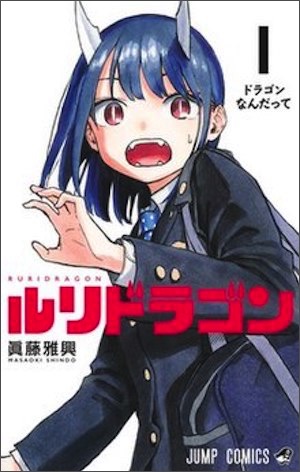
Schoolgirl Ruri is nonplussed to discover that she has sprouted two razor-sharp horns in her sleep. Ruri’s mother provides a perfectly reasonable explanation. Ruri is half dragon, and the horns are a manifestation of her father’s lineage. At school, Ruri discovers that she has inherited a second draconic trait. Happily, the student on whom Ruri breathes fire is not seriously injured1.
Ruri may be the first human-dragon hybrid. Just how her two heritages will manifest is a mystery2. However, no matter how extraordinary Ruri is, she’s still a high school student, expected to juggle academia and her personal life on her way to adulthood.
One of the remarkable aspects of this amiable manga is how nonchalantly Ruri’s schoolmates (even the one she set on fire) react to the revelation Ruri isn’t fully human. It makes one wonder what else is going on in their lives that a half-dragon chum gets a “Oh, that’s kind of cool, I guess,” reaction.
Kiki’s Delivery Service by Eiko Kadono (1985)
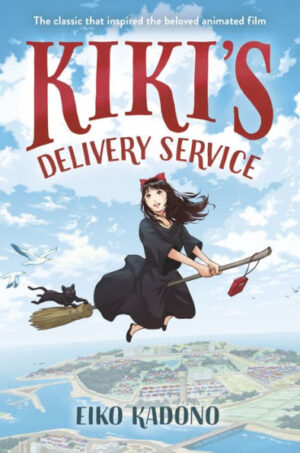
Half-human, half-witch, Kiki chose to embrace her witchy mother’s heritage. At age thirteen, Kiki faces the rite of passage all thirteen-year-old witches endure: Kiki must leave her family behind and make a new life in some unfamiliar community.
Were this not sufficient challenge, Kiki is lacking in the magical powers department. Kiki has mastered a single arcane ability: flying a broom. How to parlay this knack into something that will endear Kiki to her new community is unclear. Kiki is determined to prevail.
Something that was left out of the Studio Ghibli anime adaptation of this manga: the parlous state of witchcraft in the modern world. Lacking any sort of formal system to preserve and pass on witchcraft, each generation knows less than the one before. It’s probably for the best that the manga’s focus is on one witch who does very well for herself and not on witches in general, who probably should be placed on the endangered list.
Cyrion by Tanith Lee (1982)
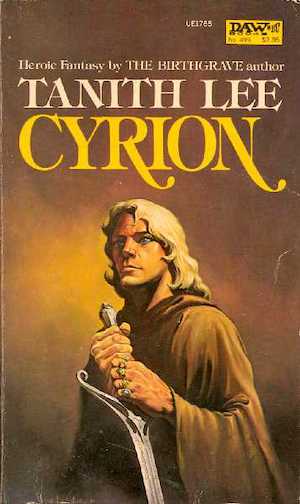
Cyrion’s world is full of magic and wonders. Cyrion’s world is also full of greed and scheming. Life in a world of conniving sorcerers, devious conspirators, and a surprising abundance of cursed items is never boring; it is, however, often short.
Enter Cyrion, who in another world might have called himself a consulting detective. Brilliant Cyrion wields an impressive array of skills, from deduction to disguise to rapid improvisation. As these eight stories demonstrate, it is always a mistake to underestimate Cyrion… but so many do.
Cyrion is one part Sherlock Holmes (minus Watson) to one part Batman (minus Robin). Like both characters, Cyrion is famous, so it’s weird how many villains have plans that boil down to “Outthink the guy whose schtick is that he is always, always, always the smartest man in the room.” Hope springs eternal3.
Swords and Deviltry by Fritz Leiber (collection 1970)
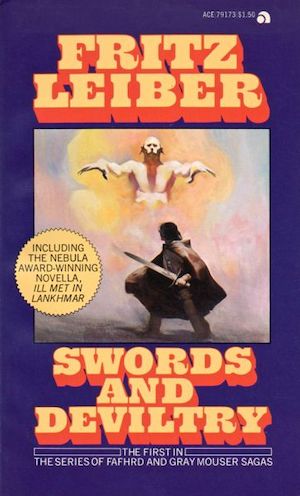
Fafhrd is a skilled barbarian from the frigid north. The Gray Mouser is a talented thief and duelist, with a smattering of magical arts. Neither giant Northman nor crafty Southerner is on a first-name basis with ethics or prudence4. Perfect adventurers for decadent Nehwon.
Swords recounts a few early incidents in the two adventurers’ lives, as they make what were in retrospect terrible decisions, and then, however implausibly, survive them. It’s good to be series protagonists, especially in stories set early in their careers5.
Swords and Deviltry is a sword and sorcery work. That genre usually features fairly low stakes (at least compared to The Lord of the Rings). At one point S&S seemed to be the dominant mode for American fantasy—so I was surprised to discover how recently S&S got its name. Of late, S&S seems to be enjoying a resurgence, which I applaud.
These are but five examples of low-stakes fantasy. No doubt many of you are fond of works that I have unjustly ignored6, works whose absence makes you question the very foundations of Western civilization. Feel free to mention your faves in comments below.

